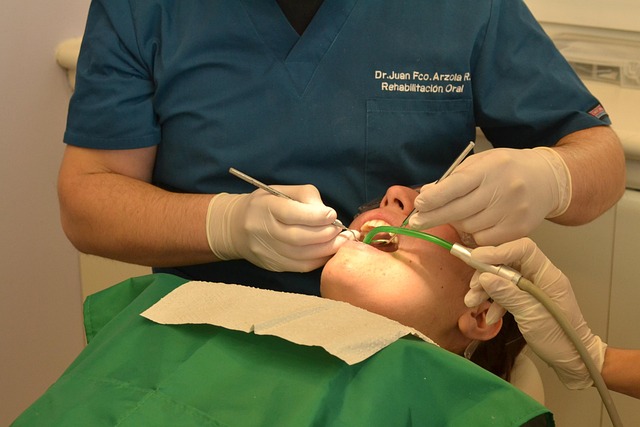Advancing Your Career: An Overview of State-Approved LPN Bridge Programs for CNAs
For Certified Nursing Assistants, advancing to a Licensed Practical Nurse is a logical career step. Specialized nursing bridge programs online are structured for working professionals, building upon their existing skills. Many state-approved LPN programs offer flexible formats, including online LPN bridge programs, to facilitate study while maintaining employment. These pathways provide a structured framework for career growth and expanded professional responsibilities in the healthcare field.

What CNA skills accelerate LPN training?
CNAs entering LPN bridge programs have a significant advantage due to their hands-on experience in patient care. Skills such as vital sign monitoring, patient hygiene management, and basic medical terminology provide a solid foundation for advanced nursing studies. Additionally, CNAs’ familiarity with healthcare settings and team dynamics allows them to quickly adapt to the expanded scope of LPN practice. This existing skill set often enables CNAs to complete LPN programs more efficiently than those entering without prior healthcare experience.
How do LPN and RN career pathways compare?
While both LPNs and Registered Nurses (RNs) play crucial roles in patient care, their career pathways differ in several aspects. LPNs typically complete a 12-18 month program, focusing on practical, hands-on nursing skills. RNs, on the other hand, pursue either an Associate Degree in Nursing (ADN) or a Bachelor of Science in Nursing (BSN), which takes 2-4 years to complete. RNs generally have more advanced responsibilities, including patient assessment, care planning, and administration of complex treatments. LPNs often work under the supervision of RNs, providing direct patient care and performing routine medical procedures.
What is the NCLEX-PN examination process?
The National Council Licensure Examination for Practical Nurses (NCLEX-PN) is a crucial step in becoming a licensed LPN. This computer-adaptive test assesses a candidate’s knowledge and skills necessary for entry-level nursing practice. The exam covers four main categories: safe and effective care environment, health promotion and maintenance, psychosocial integrity, and physiological integrity. To navigate the NCLEX-PN process, candidates must first complete an approved nursing program, apply for licensure with their state board of nursing, and register for the exam through Pearson VUE. Preparation typically involves comprehensive review courses, practice tests, and study materials focused on critical thinking and application of nursing concepts.
How can CNAs financially plan for nursing education advancement?
Financial planning is crucial for CNAs considering LPN bridge programs. Several strategies can help manage the costs:
-
Research scholarship opportunities specifically for healthcare professionals advancing their careers.
-
Explore employer tuition assistance programs, as many healthcare facilities support staff education.
-
Consider part-time study options to maintain income while pursuing education.
-
Investigate federal and state financial aid programs, including grants and low-interest loans.
-
Look into credit transfer options from previous CNA training to potentially reduce program duration and costs.
It’s important to create a budget that accounts for tuition, textbooks, uniforms, and potential reduced work hours during the program.
What does a typical day look like for a Licensed Practical Nurse?
A day in the life of an LPN varies depending on the healthcare setting but generally involves a range of patient care activities. LPNs may start their shift by reviewing patient charts and receiving handoff reports from the previous shift. Throughout the day, they perform tasks such as:
-
Administering medications and monitoring patient responses
-
Changing dressings and caring for wounds
-
Inserting and maintaining catheters
-
Assisting with patient mobility and daily living activities
-
Recording vital signs and updating patient records
-
Communicating with patients, families, and the healthcare team
LPNs often work in long-term care facilities, hospitals, clinics, and home health settings, adapting their routines to meet the specific needs of their work environment.
What are the costs and options for state-approved LPN bridge programs?
When considering LPN bridge programs, it’s essential to understand the costs and options available. Here’s a comparison of some state-approved programs:
| Program Name | Location | Duration | Estimated Cost |
|---|---|---|---|
| Excelsior College | Online | 12-18 months | $6,000 - $8,000 |
| Nightingale College | Online/Hybrid | 12 months | $20,000 - $25,000 |
| Rasmussen University | Multiple States | 9-12 months | $15,000 - $20,000 |
| Penn Foster | Online | 9-12 months | $3,000 - $4,000 |
| Herzing University | Multiple States | 12 months | $18,000 - $22,000 |
Prices, rates, or cost estimates mentioned in this article are based on the latest available information but may change over time. Independent research is advised before making financial decisions.
These programs offer various formats, including online, hybrid, and on-campus options, catering to different learning preferences and schedules. Online programs often provide greater flexibility for working CNAs, while hybrid programs combine online coursework with in-person clinical experiences. When selecting a program, consider factors such as accreditation, NCLEX-PN pass rates, and support services offered to students.
In conclusion, state-approved LPN bridge programs offer CNAs a valuable opportunity to advance their nursing careers. By leveraging existing skills, understanding the career pathways, preparing for the NCLEX-PN, and carefully planning finances, CNAs can successfully transition to the role of Licensed Practical Nurse. This career move not only expands professional opportunities but also enhances the ability to provide comprehensive patient care in various healthcare settings.
This article is for informational purposes only and should not be considered medical advice. Please consult a qualified healthcare professional for personalized guidance and treatment.




